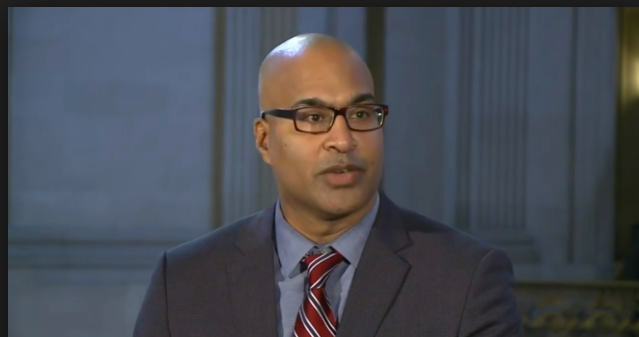California moved a huge step closer today to ending cash bail.
The state Supreme Court issued a clear, compelling ruling that judges have to take into account the ability of a person to pay when setting conditions for pre-trial release.

The ruling in the case of Kenneth Humphrey doesn’t entirely abolish cash bail. The voters last November overturned legislation that would have done that.
But the justices made clear that bail so high that a defendant can’t possibly meet it is unconstitutional – and that’s a huge step.
“There are 500,000 people in cages awaiting trial” in the US, Alec Karakatsanis, director of the Civil Rights Corps, said in a press conference this morning. “Today’s decision will go a long way toward eradicating that.”
More:
The police, prosecutors, and bail bond companies who benefit from pretrial human caging are working hard to ensure that any system that replaces this money bail system reproduces its harms; however, today’s victory provides us much needed energy as we continue our fight for basic liberty and for returning people to their families and communities.
The bail-bond industry financed the ballot referendum last fall, and promoted misleading information suggesting that ending cash bail would allow dangerous criminals to stay on the streets.
In fact, the law has always been clear: Judges who think a suspect is a danger to society have full authority to keep that person locked up until trial.
But hundreds of thousands of people who pose no risk but have no money remain incarcerated – while people who may have committed serious crimes can be freed if they have the money.
From the court ruling:
The common practice of conditioning freedom solely on whether an arrestee can afford bail is unconstitutional. Other conditions of release — such as electronic monitoring, regular check-ins with a pretrial case manager, community housing or shelter, and drug and alcohol treatment — can in many cases protect public and victim safety as well as assure the arrestee’s appearance at trial.
People who are arrested and held because they can’t afford bail are more likely to accept a bad plea bargain, SF Public Defender Mano Raju said. “Too many judges are using bail to detail people, forcing unjust prosecution-friendly pleas,” he said.
That’s because someone arrested for a crime can languish in jail for more than a year before trial – and in the process, can lose their home, their job, custody of their kids, and so much more.
The bail system is incredibly racist: Black adults are 11 times as likely to be held in jail pre-trail as white adults, Raju said.
“We need to end wealth-based incarceration,” he noted.
People who want to get out of jail to keep their jobs and homes often have to pay high fees to bail-bonds agents. Bail is set at $50,000 and you don’t have it? Pay a bond company $7,500 and they will get you out – but you never get that money back.
Much of that burden falls on women, Gina Clayton-Johnson, Executive Director and Founder of Essie Justice Group, said. Women often have to put up money to bail-bonds companies to get loved ones out of jail, risking their own housing and financial security, she said.
And there are other costs. In most parts of California, inmates (who in many cases have not been found guilty of anything) have to pay huge fees just to make a phone call to their families. And entire industry feeds on the incarceration of poor people.
And now, that is starting to change.




